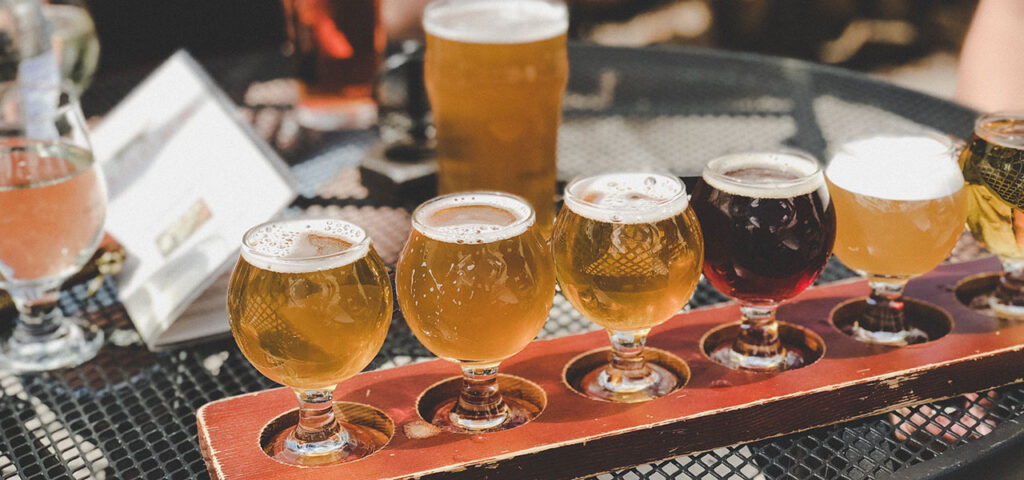Craft Beverage Act is a “Bipartisan Priority”

January 1, 2021, is an important day for craft distillers, brewers, wineries, meaderies, and cideries. Without legislative intervention, these artisans face a significant hike in federal excise tax at the end of an already difficult year. Hopeful for a passage of senate bill 362, these beverage creators have been lobbying hard for much-needed tax relief as the continued impact of the closure of bars plagues the industry.
Congress Supports Craft Beverage Modernization Act
On December 1, Congress sent a little help. In the form of a letter noting the support of 77 United States Senators and 351 United States Representatives urging passage of the Craft Beverage Modernization Act, the industry may have found its champions. The signatures to the letter tout the Craft Beverage Act as a “bipartisan priority” and an “economic lifeline to thousands of businesses across the country,” noting the positive impact of the industry on companion industries from agriculture to transportation.
Many people view craft beverage creators as the heart of American production. While America stands relatively divided, assistance to alcohol producers seems an issue almost everyone can get behind. The Act would make the current excise tax cuts to craft distillers, brewers, wineries, meaderies, and cideries permanent. Unfortunately, its passage likely hinges on inclusion in the next behemoth stimulus bill currently under consideration.
By way of history, the Craft Beverage Modernization Act is a portion of the Tax Cuts and Jobs Act of 2017. The Act changed the Internal Revenue Code of 1986 as it related to the alcohol provisions that are administered by the Alcohol and Tobacco Tax and Trade Bureau of the US Department of the Treasury. The changes were initially applicable only in 2018 and 2019. On December 20, 2019, the President signed into law the Further Consolidated Appropriations Act of 2020, which extended the provisions of the Craft Beverage Modernization Act related to alcohol for one year, through December 31, 2020.
By way of illustration of the impact of the reductions, for distilled spirits, The Act provides for reduced tax rates on spirits distilled or processed and removed during the calendar year or imported by the importer into the United States during the calendar year. These rates are equal to $2.70 per proof gallon on the first 100,000 proof gallons removed or imported, and $13.34 per proof gallon on the next 22.13 million proof gallons removed or imported. The tax rate for distilled spirits not subject to the reduced rates is $13.50 per proof gallon. That’s an 80% reduction in taxes on the first 100,000 gallons, resulting in cheaper bottles for consumers of high-end products and significant savings for producers suffering the effects of COVID-19. The impact on craft operators, of which the industry has seen a proliferation, is tremendous.
While the Act has been criticized for a loophole that allows large producers of cheaper alcohol to claim the tax benefits intended for smaller producers by shipping through smaller outlets or even through shell companies, an option remains to close the shipping loophole and to protect craft producers from the stark increases slated for January 1. The loophole could be largely eliminated, argues the Brookings Institute, by reducing the gallon threshold from 100,000 to 10,000, which would preserve the benefit for more than 90% of craft producers.
Last Call For Action
Calling it a “last call” for action, the Oregon Brewers Guild joined others across the nation in a national Day of Action to urge Congress to pass the Craft Beverage Modernization and Tax Reform Act and make the current federal excise tax rates permanent. Plagued by the closing of tasting rooms, the elimination of tours, and difficult decisions to stop production, true craft producers are hoping for much-needed protection from yet another hit in unprecedented, difficult economic times. With thousands of American jobs on the line, we raise a glass to the efforts to help these businesses survive and thrive.
Supporters, including professionals in the beverage alcohol industry, supply chain partners, and consumers are encouraged to contact their members of Congress to urge passage of this bipartisan legislation.
Attorneys For Distillers, Brewers, And Wineries
The Lynch Law Group assists companies, ranging from family-owned businesses to Fortune 500 companies, in a broad spectrum of legal matters, both inside the courtroom and out. Contact us at 724-776-8000.




